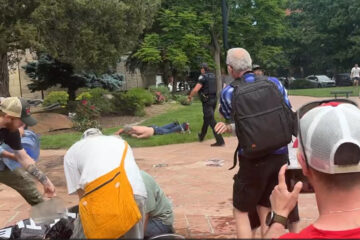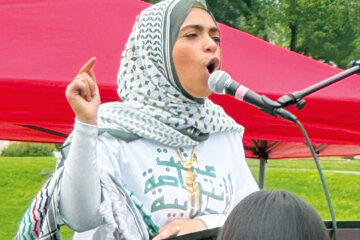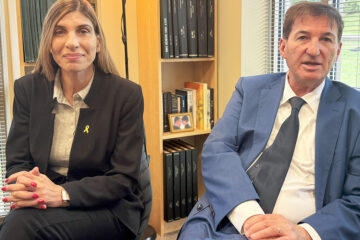Three months after fleeing Ukraine, 12-year-old arrives in Centerville
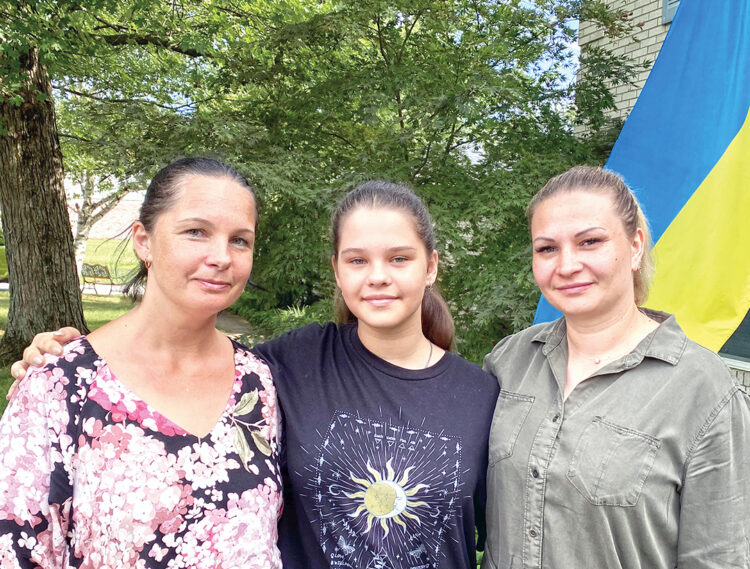
By Marshall Weiss, The Dayton Jewish Observer
Maryna Braginsky had never met her niece Polina in person before. The 12-year-old girl’s resemblance to her is striking. And Polina had never met her first cousins — Maryna and husband Michael Braginsky’s six children.
The Braginsky house in Centerville is now Polina’s home too, while Ukraine is under attack from Russia.
After a journey of three months across five countries, Polina entered the United States through Uniting for Ukraine, the U.S. government program that allows Ukrainians seeking refuge to travel to the U.S. with the support of a sponsor. She is able to stay here for two years.
Polina arrived in the U.S. with her mother, Yulia — also through Uniting for Ukraine — on July 22 in Philadelphia. A day later, their connecting flight landed in Cincinnati.
But Yulia departed the U.S. Aug. 20 to make the dangerous journey back to Ukraine. Her husband — Maryna’s older brother — serves in the Ukrainian army. She cares for her parents and in-laws in Sumy, where Yulia runs a grocery that supplies the city with food.
To ensure Immigration and Naturalization wouldn’t separate Polina from sponsors Maryna and Michael, Yulia gave the Braginskys power of attorney for her daughter.
“She’s not my relative according to American standards,” Maryna says of her niece.
“It was a difficult decision,” Yulia tells The Observer at the Braginsky dining room table, set with two covered challahs a few hours before Shabbat, Aug. 12. Maryna translates for her from Russian, Yulia’s primary language.
“Of course I would like my own daughter to stay in my own country,” Yulia says. “I understand that the child should not see and not be involved in what’s going on right now. So I had to bring her.”
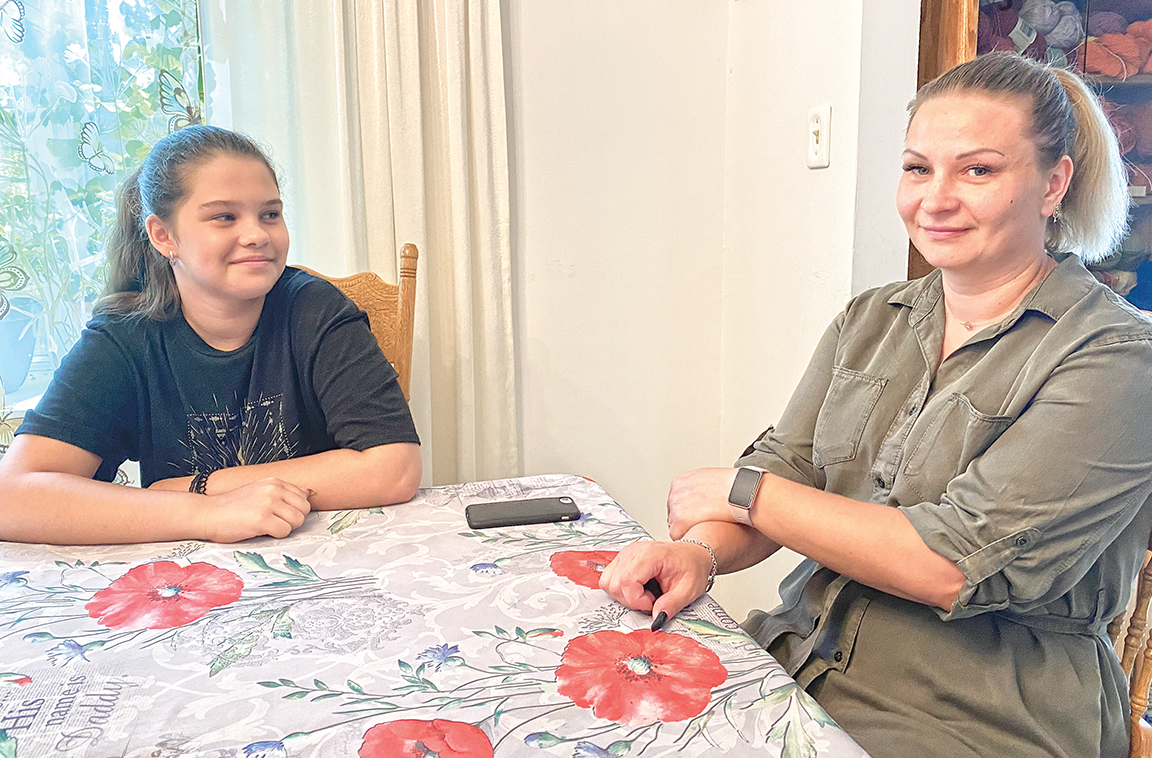
Maryna also translates for her niece Polina. “From the 24th to 25th of February, it was scary because there were so many Russian tanks in the city,” Polina says. “We live very close to the border. They were just coming and coming on tanks and on military trucks.”
On Yulia’s one-hour walk to the grocery, she would see dead bodies in the streets.
“I was walking to work,” Yulia says, “and the military plane was going very low, so I didn’t know if he was going to drop the bomb now, right here, and I’ll be done for.”
Another time, the Russians bombed the electric station and Sumy had no electricity and no internet connections.
“I couldn’t even call Maryna’s parents or my parents,” Yulia says. “And there was no water. I had to walk across the whole city to her parents to figure out are they OK and then walk again to my parents to ask, and then went to work.”
Polina stayed with her father’s mother and stepfather.
With an electric water pump at her grandparents’ house, Polina says, the house had no running water. “So we would go outside to gather snow in buckets so we could wash our hands or cook or drink.”
Much of the time they hid in the basement.
“When dusk came, we weren’t allowed to have any lights in the windows,” Polina says. “We had blankets in the windows and tried to keep the light low. You sit in a basement in a dark, dark house and you hear the fighting planes just making very large sounds because they go in very, very low, probably looking for targets.”
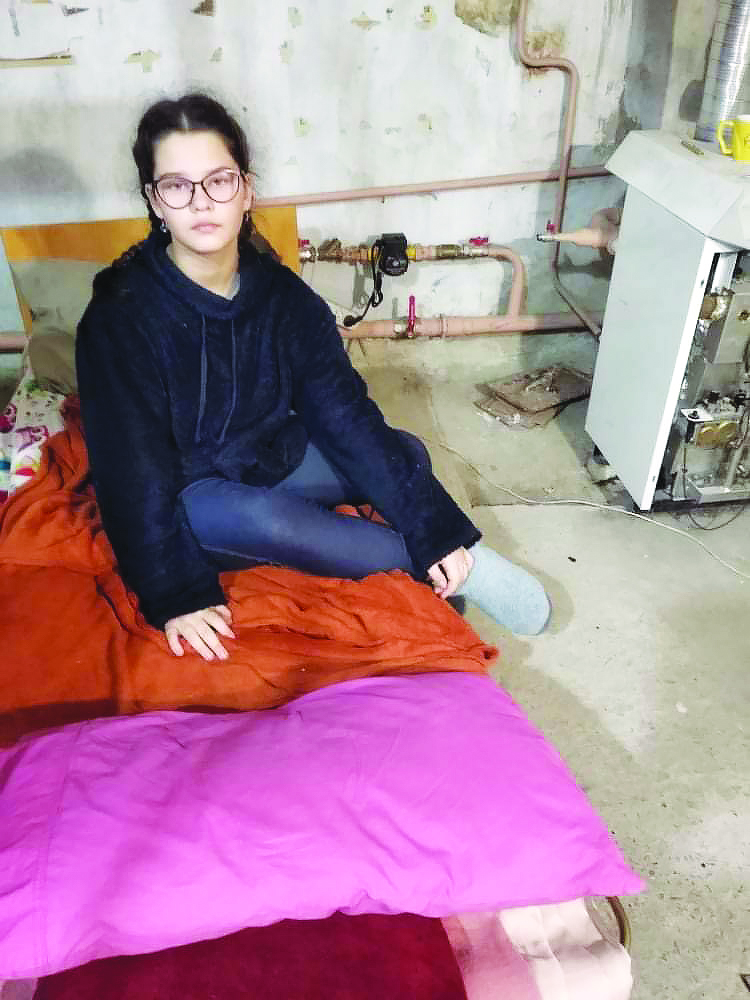
The bombing was so intense, Polina says, that sometimes she and her grandparents didn’t have time to eat.
“We were so afraid. It was dark, there was no ventilation because it was never meant to be a bomb shelter. We were basically there the whole night.” Neighbors and their child hid with them during the first weeks of the war.
For the first two months of the war, Polina’s family was afraid it was too dangerous to try to evacuate her.
At the end of April, they managed to get Polina to France. A police team took Polina and her mother across Ukraine and to the Polish border.
At the border, Yulia put Polina in the care of friends of friends who took the girl through Poland; Polina stayed with them in Germany for a week. In France, she stayed with a distant relative of Maryna’s husband.
“The trip from Sumy across Ukraine was very scary because there were a lot of checkpoints,” Yulia says. “And our driver was male. It was very dark. It was very cold. And at every checkpoint, you see guys with weapons and they’re ready to shoot. You don’t even know if it’s your guys.”
At one checkpoint, she heard a lot of shooting and saw mines on the sides of the road.
“You see mines there, you never know if there’s one in the middle of the road,” Yulia says.
At another checkpoint, the guards didn’t want to let the driver pass through.
“They were suspicious: if you are enlisted in territorial defense, why are you here? What are you doing across the country? He said, ‘I’m taking two girls across the country. They need to get out of the country.’ They asked for all of our documents. So you sit in a car, surrounded by armed people. They could say, ‘Go back,’ and that’s it.”
After seeing Polina off, Yulia survived the journey in reverse. She returned to Sumy.
Yulia made the journey across Ukraine yet again, nearly three months later, to reunite with her daughter in Paris, where they flew to the United States in July.
When mother and daughter arrived in Philadelphia, Yulia says, Immigration and Naturalization “just took our papers and they didn’t explain anything. They just put us in a room to interview us later.”
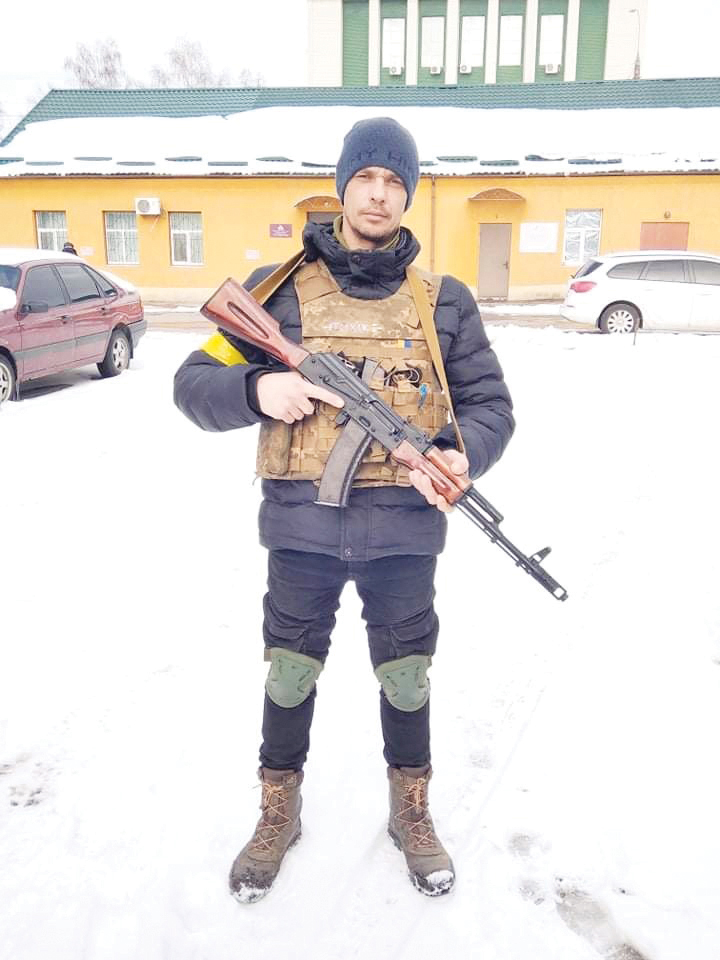
Polina says she talks or texts with her father every day.
“Sometimes he doesn’t have a good connection,” she says.
The last time Polina saw her father was for 15 minutes before she left Sumy for France.
Yulia last saw her husband in a surprise visit July 9.
“It was my birthday, and he came to give me flowers,” Yulia says. “He and two of his comrades, they did something brave. And they rewarded him for that. He’s in the artillery. He does all the calculations, and his guys shoot. He says (once they shoot), he has six to nine minutes to get out of that spot.”
When asked how she thinks the war will go, Yulia doesn’t hesitate: “Only the victory.”
She says she and her family felt safe in Ukraine before Russia’s invasion.
“People in Ukraine never thought that in the 21st century, somebody would do this war: where they don’t talk but send people to be killed and to kill. We didn’t believe that people would march and start really killing. That was a huge shock.”
Maryna’s mother and stepfather remain in their home in Sumy.
“We ask her if she would like, at least, to go to Poland, to safety for the time being,” Maryna says. “And she said, no, because her two sons are there fighting. She’s not going to go.”
Polina says people should know that the Russians killed children every day.
“While we were going through the countries, especially through Poland — where the majority of refugees go first — we met a lot of people from Bucha, from Mariupol, and the cars were full of shrapnel because the Russians saw people evacuating, and they fired at those cars.”
Yulia says the things they saw were horrible. “I cannot believe it happened. But, you know, people did it to people. A lot of those refugees, they say, ‘We have nowhere to go back to because everything was just erased. There’s nothing left.’ And they don’t know what to do. Mariupol doesn’t exist. And that is very horrible.”
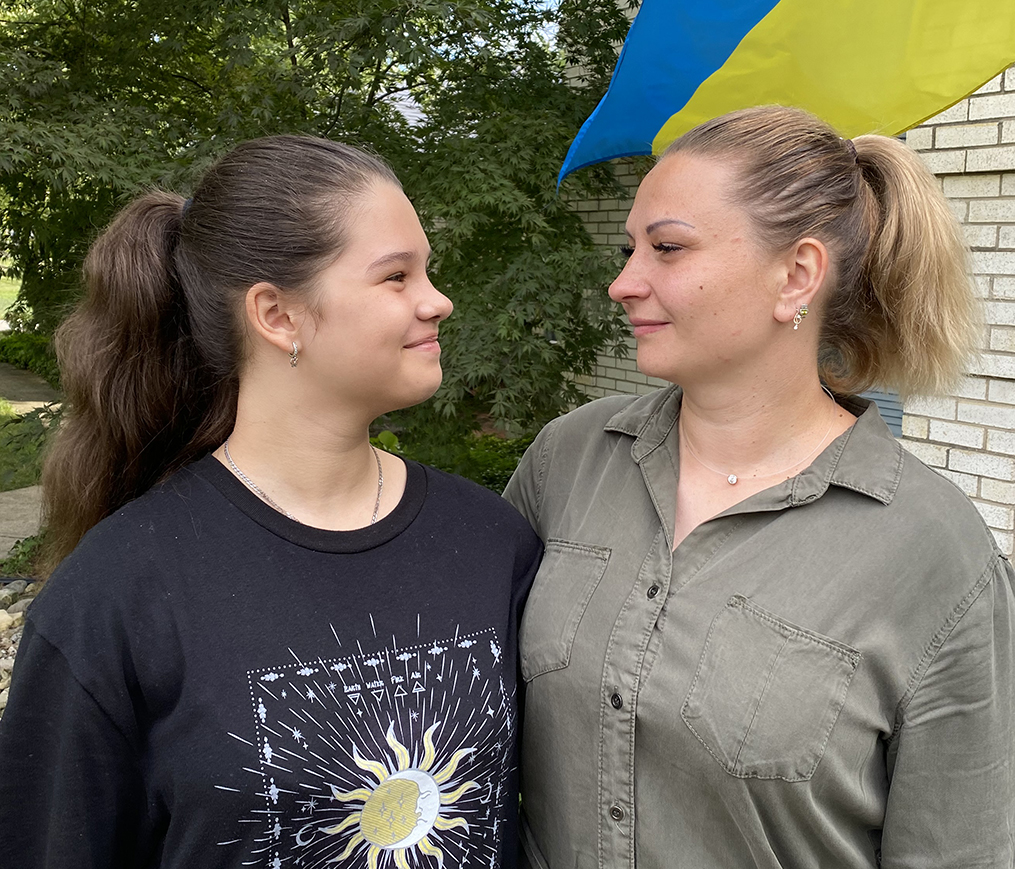
Polina started Magsig Middle School Aug. 17, where she is a seventh grader. She takes the bus with her cousin who is an eighth-grader there.
She says she feels safe. Back to normal. But she wants to go back home. Polina and her mother anticipate the day they’ll all be back together in Sumy.
Polina adds that she, too, would like to serve in the Ukrainian military when she grows up. She doubts her mom would let her do that, but adds that her father would.
“The army there, by that time, will be trained by NATO standards and will be weaponized with very nice, modern weapons,” Yulia says.
For now, Yulia tells her daughter, “You’re never going to get bored here in this house.”
“I can’t imagine. An 11-year-old kid? I have trouble letting my 19-year-old drive across the street,” Maryna says of Polina’s journey; she just celebrated her 12th birthday.
Maryna and her husband, Michael, worked with immigration lawyers to find a way to get Polina in their care. “It was super hard,” Maryna says. “Nothing seemed to help. We told them (Polina’s parents) that we are sure we can pull this off, and something fell through. It was shattering. We had hours to put something else together here and to find people who would bring her.”
Maryna says at least part of the story has come to a safe end. “It’s not a happy end,” she says. “Polina knows her dad is in danger. We’re going to make her as comfortable as possible.”
To read the complete September 2022 Dayton Jewish Observer, click here.



